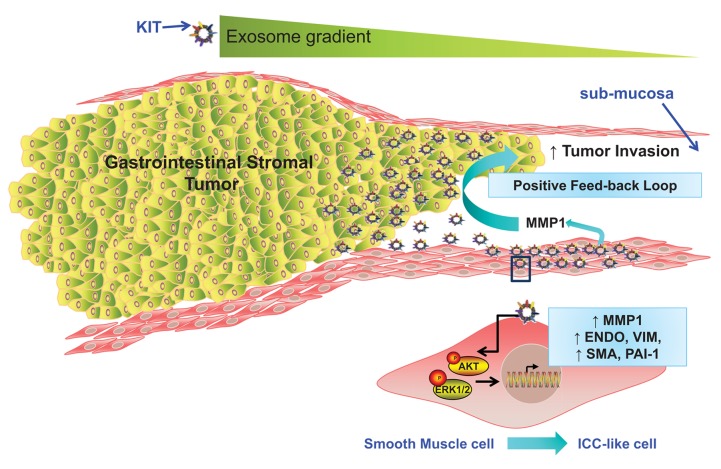Figure 1. Proposed model of tumor-stromal positive feed-back loop mediated by oncogenic KIT-bearing tumor exosomes in the regulation of tumor invasion. GIST cells secrete a gradient of exosomes carrying mutant KIT, which after internalization by surrounding smooth muscle cells activate downstream signaling pathways of KIT (e.g., AKT and MAPK pathways) and induce an enhanced expression of endoglin, vimentin (VIM), smooth muscle actin (SMA), and plasminogen activator inhibitor-1 (PAI-1) in the recipient cells, resembling an ICC-like phenotype. This tumor−stromal interaction creates a positive feed-back loop in which tumor-derived exosome-mediated signaling in stromal cells increases MMP1 secretion. In turn, tumor cells utilized MMP1 to invade the submucosa. This model describes a previously unreported mechanism by which tumor-derived exosomes can modulate their host microenvironment and promote local invasion and potentially distant metastasis.

An official website of the United States government
Here's how you know
Official websites use .gov
A
.gov website belongs to an official
government organization in the United States.
Secure .gov websites use HTTPS
A lock (
) or https:// means you've safely
connected to the .gov website. Share sensitive
information only on official, secure websites.
